Super User
Program Educational Objectives
The Chemical Engineering Program prepares students with knowledge and skills so that they can go to work immediately after graduation or continue their education in graduate programs. We expect our graduates, after a certain time (from 3 to 5 years), can achieve the Program educational objectives as follows:
Graduates of the Chemical Engineering program will:
- Be practical, employable and qualified chemical engineers, who are capable of designing, operating, researching, innovation and management in downstream area of oil and gas industry,
- Continue their professional development and become professional managers for enterprises of Vietnam Oil and Gas Group, multinational companies, and/or become scientists for research institutes and universities,
- Keep their education up to date through self-instruction and other training to meet the challenges of the competitive, modern and dynamic workplace.
Student Outcomes
The student outcomes of our Chemical Engineering Program are the same as those required by ABET for any engineering program to receive accreditation. The Chemical Engineering graduates will have:
- an ability to identify, formulate, and solve complex engineering problems by applying principles of engineering, science, and mathematics;
- an ability to apply engineering design to produce solutions that meet specified needs with consideration of public health, safety, and welfare, as well as global, cultural, social, environmental, and economic factors;
- an ability to communicate effectively with a range of audiences;
- an ability to recognize ethical and professional responsibilities in engineering situations and make informed judgments, which must consider the impact of engineering solutions in global, economic, environmental, and societal contexts;
- an ability to function effectively on a team whose members together provide leadership, create a collaborative and inclusive environment, establish goals, plan tasks, and meet objectives;
- an ability to develop and conduct appropriate experimentation, analyze and interpret data, and use engineering judgment to draw conclusions;
- an ability to acquire and apply new knowledge as needed, using appropriate learning strategies.
Undergraduate Curiculum in Chemical Engineering
Program Educational Objectives
The Chemical Engineering Program prepares students with knowledge and skills so that they can go to work immediately after graduation or continue their education in graduate programs. We expect our graduates, after a certain time (from 3 to 5 years), can achieve the Program educational objectives as follows:
Graduates of the Chemical Engineering program will:
- Be practical, employable and qualified chemical engineers, who are capable of designing, operating, researching, innovation and management in downstream area of oil and gas industry,
- Continue their professional development and become professional managers for enterprises of Vietnam Oil and Gas Group, multinational companies, and/or become scientists for research institutes and universities,
- Keep their education up to date through self-instruction and other training to meet the challenges of the competitive, modern and dynamic workplace.
Student Outcomes
The student outcomes of our Chemical Engineering Program are the same as those required by ABET for any engineering program to receive accreditation. The Chemical Engineering graduates will have:
- an ability to identify, formulate, and solve complex engineering problems by applying principles of engineering, science, and mathematics;
- an ability to apply engineering design to produce solutions that meet specified needs with consideration of public health, safety, and welfare, as well as global, cultural, social, environmental, and economic factors;
- an ability to communicate effectively with a range of audiences;
- an ability to recognize ethical and professional responsibilities in engineering situations and make informed judgments, which must consider the impact of engineering solutions in global, economic, environmental, and societal contexts;
- an ability to function effectively on a team whose members together provide leadership, create a collaborative and inclusive environment, establish goals, plan tasks, and meet objectives;
- an ability to develop and conduct appropriate experimentation, analyze and interpret data, and use engineering judgment to draw conclusions;
- an ability to acquire and apply new knowledge as needed, using appropriate learning strategies.
Catalog Description
Undergraduate Curiculum in Chemical Engineering
Program Educational Objectives
The Chemical Engineering Program prepares students with knowledge and skills so that they can go to work immediately after graduation or continue their education in graduate programs. We expect our graduates, after a certain time (from 3 to 5 years), can achieve the Program educational objectives as follows:
Graduates of the Chemical Engineering program will:
- Be practical, employable and qualified chemical engineers, who are capable of designing, operating, researching, innovation and management in downstream area of oil and gas industry,
- Continue their professional development and become professional managers for enterprises of Vietnam Oil and Gas Group, multinational companies, and/or become scientists for research institutes and universities,
- Keep their education up to date through self-instruction and other training to meet the challenges of the competitive, modern and dynamic workplace.
Student Outcomes
The student outcomes of our Chemical Engineering Program are the same as those required by ABET for any engineering program to receive accreditation. The Chemical Engineering graduates will have:
- an ability to identify, formulate, and solve complex engineering problems by applying principles of engineering, science, and mathematics;
- an ability to apply engineering design to produce solutions that meet specified needs with consideration of public health, safety, and welfare, as well as global, cultural, social, environmental, and economic factors;
- an ability to communicate effectively with a range of audiences;
- an ability to recognize ethical and professional responsibilities in engineering situations and make informed judgments, which must consider the impact of engineering solutions in global, economic, environmental, and societal contexts;
- an ability to function effectively on a team whose members together provide leadership, create a collaborative and inclusive environment, establish goals, plan tasks, and meet objectives;
- an ability to develop and conduct appropriate experimentation, analyze and interpret data, and use engineering judgment to draw conclusions;
- an ability to acquire and apply new knowledge as needed, using appropriate learning strategies.
Chemical Engineering curriculum (Total credit hours 155)
|
FRESHMAN YEAR |
|||||
|
First Semester |
Cr |
Second Semester |
Cr |
||
|
SOC01301 |
Philosophy of Marxism and |
3 |
ENG41301 |
English 1 |
3 |
|
MAT11301 |
Calculus 1 |
3 |
SOC01203 |
Scientific socialism |
2 |
|
ELE31201 |
Foundations in Engineering 1 (+Lab) |
2 |
MAT11302 |
Calculus 2 |
3 |
|
CHE11301 |
General Chemistry 1 |
3 |
PET11105 |
Career Orientation Field Trip |
1 |
|
CHE11101LAB |
General Chemistry Lab 1 |
1 |
INC31301 |
Foundations in Engineering 2 (+Lab) |
3 |
|
PHY21201 |
General Physics 1 |
2 |
PHY21202 |
General Physics 2 |
2 |
|
PHY21101LAB |
General Physics Lab 1 |
1 |
PHY21102LAB |
General Physics Lab 2 |
1 |
|
PET21201 |
Introduction to Oil and Gas |
2 |
SOC01205 |
History of Vietnamese |
2 |
|
SOC01202 |
Political Economics of Marxism and Leninism |
2 |
SOC01204 |
Ho Chi Minh's Ideology |
2 |
|
ENG41000 |
English Preparation (120 hrs.*) |
|
PED11102 |
Physical Education 2 (1*) |
|
|
PED11101 |
Physical Education 1 (1*) |
|
MIE01101 |
Military Education (165 hrs.) |
|
|
Total |
19 |
Total |
19 |
||
|
SOPHOMORE YEAR |
|||||
|
First Semester |
Cr |
Second Semester |
Cr |
||
|
ENG42302 |
English 2 |
3 |
ENG42303 |
English 3 |
3 |
|
MAT12203 |
Calculus 3 |
2 |
MAT12305 |
Differential Equations |
3 |
|
CHE12302 |
General Chemistry 2 |
3 |
PPR12302 |
Principles of Chemical |
3 |
|
CHE12102LAB |
General Chemistry Lab 2 |
1 |
PPR12303 |
Heat Transfer |
3 |
|
MEC32301 |
Thermodynamics |
3 |
PPR12336 |
Equilibrium Thermodynamics |
3 |
|
MEC22302 |
Fluid mechanics (+ Lab) |
3 |
PPR12320 |
Analytical Chemistry |
3 |
|
PPR12301 |
Organic Chemistry 1 |
3 |
PPR12120LAB |
Analytical Chemistry Lab |
1 |
|
PPR12101LAB |
Organic Chemistry Lab 1 |
1 |
MAT12206 |
Probability And Statistics |
2 |
|
ELE32203 |
Electric Circuit Analysis (+Lab) |
2 |
PPR12204 |
Summer Internship 1 |
2 |
|
SOC02206 |
Professional Skills for Engineers |
2 |
|||
|
PED12103 |
Physical Education 3 (1*) |
|
|||
|
Total |
23 |
Total |
23 |
||
|
JUNIOR YEAR |
|||||
|
First Semester |
Cr |
Second Semester |
Cr |
||
|
ENG43304 |
English 4 |
3 |
PPR13207 |
Chemical Reactor Design |
2 |
|
PPR13305 |
Mass Transfer |
3 |
PPR13208 |
Process Component Design |
2 |
|
PPR13306 |
Gas Processing Technology |
3 |
PPR13339 |
Petroleum Refining Technology |
3 |
|
ELE33305 |
Process Control (+ Lab) |
3 |
PPR13137LAB |
Chemical Engineering Lab |
1 |
|
PPR12317 |
Physical Chemistry 1 |
3 |
PPR13138LAB |
Specialized Experiment |
1 |
|
PPR13326 |
Reaction Engineering |
3 |
PPR12119LAB |
Physical Chemistry Lab |
1 |
|
PPR13327 |
Petroleum Chemistry |
3 |
ECO13301 |
Petroleum Economics |
3 |
|
|
Elective 1 |
3 |
PSE13201 |
Health, Safety and Environment |
2 |
|
PPR13241 |
Senior Project 1 |
2 |
|||
|
|
|
|
PPR13240 |
Summer Internship 2 |
2 |
|
Total |
24 |
Total |
19 |
||
|
SENIOR YEAR |
|||||
|
First Semester |
Cr |
Second Semester |
Cr |
||
|
PPR14309 |
Chemical Engineering Plant Design |
3 |
PPR14315 |
Graduation Internship |
3 |
|
PPR14310 |
Petrochemical Technology |
3 |
PPR14816 |
Graduation Thesis |
8 |
|
PPR14311 |
Petroleum and Petrochemical |
3 |
Total |
11 |
|
|
PPR14312 |
Process Simulation and |
3 |
|
||
|
PPR14113LAB |
Specialized Experiment 2 |
1 |
|||
|
PPR14214 |
Senior Project 2 |
2 |
|||
|
|
Elective 2 |
2 |
|||
|
Total |
17 |
||||
|
Elective Courses |
|||||
|
Elective 1 |
|
Elective 2 |
|
||
|
Course |
CR |
Course |
CR |
||
|
PPR13323 |
Polymer Chemistry |
3 |
PPR14232 |
The Process of Production of Lubricants and Synthetic Liquid Fuels |
2 |
|
PPR13324 |
Biochemistry |
3 |
PPR14230 |
Heavy Oil Upgrading Technology |
2 |
|
|
|
|
PET14233 |
Renewable Energy |
2 |
|
|
|
|
PPR14228 |
Equipment in petroleum processing |
2 |
|
|
|
|
PPR14231 |
Additives for Petroleum Products |
2 |
|
|
|
|
PPR14235 |
Special Topics |
2 |
CE Enrollment Data
|
Academic Year |
Enrollment Year | Degrees Awarded | ||||
| 1st | 2nd | 3rd | 4th | Bachelors | ||
| 2023-2024 | FT | 64* | 21 | 27 | 22 | |
| 2022-2023 | FT | 41* | 28 | 22 | 34 | 23 |
| 2021-2022 | FT | 48* | 24 | 34 | 40 | 33 |
| 2020-2021 | FT | 54* | 34 | 40 | 32 | 27 |
| 2019-2020 | FT | 58* | 42 | 32 | 26 | 25 |
* The total number of students of the 3 programs (Geological Engineering, Petroleum Engineeering, Chemical Engineering). After the first academic year, the students will choose their majors.
FT: Full tiem
List of CE Faculties
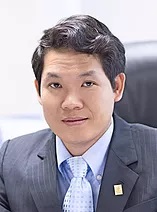
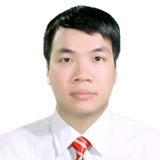
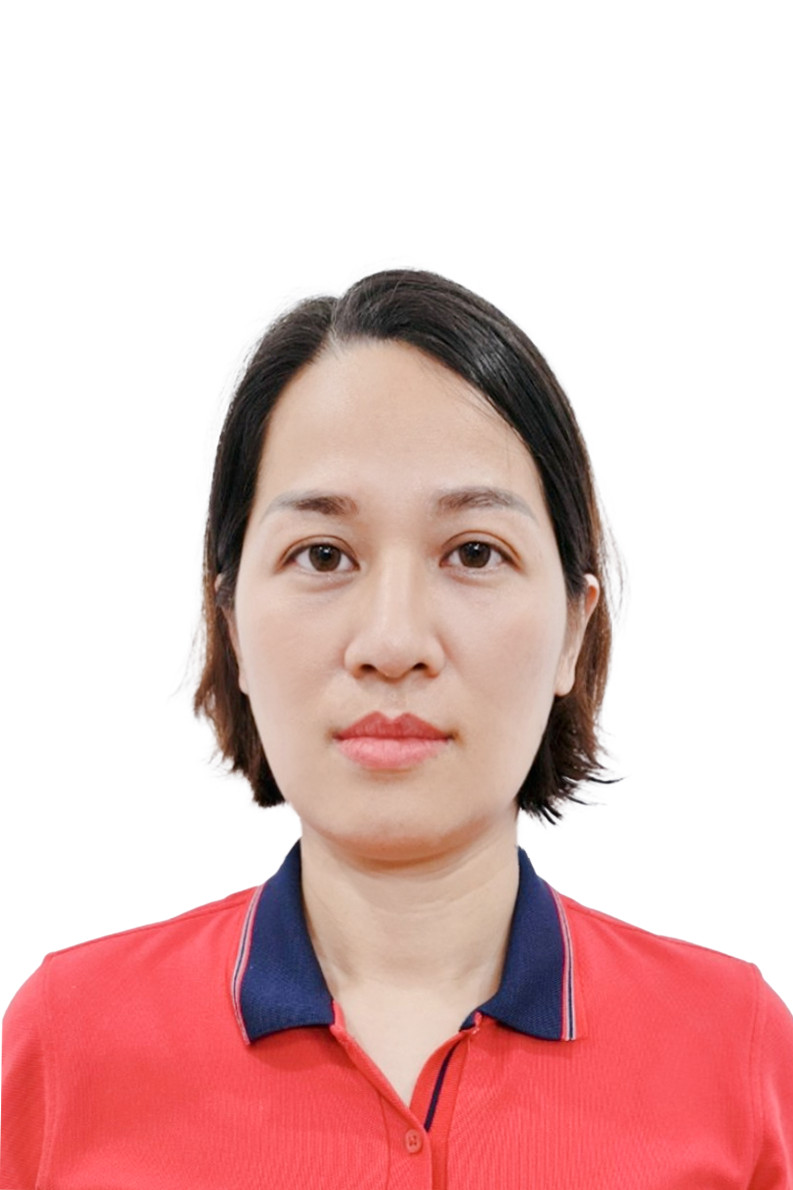
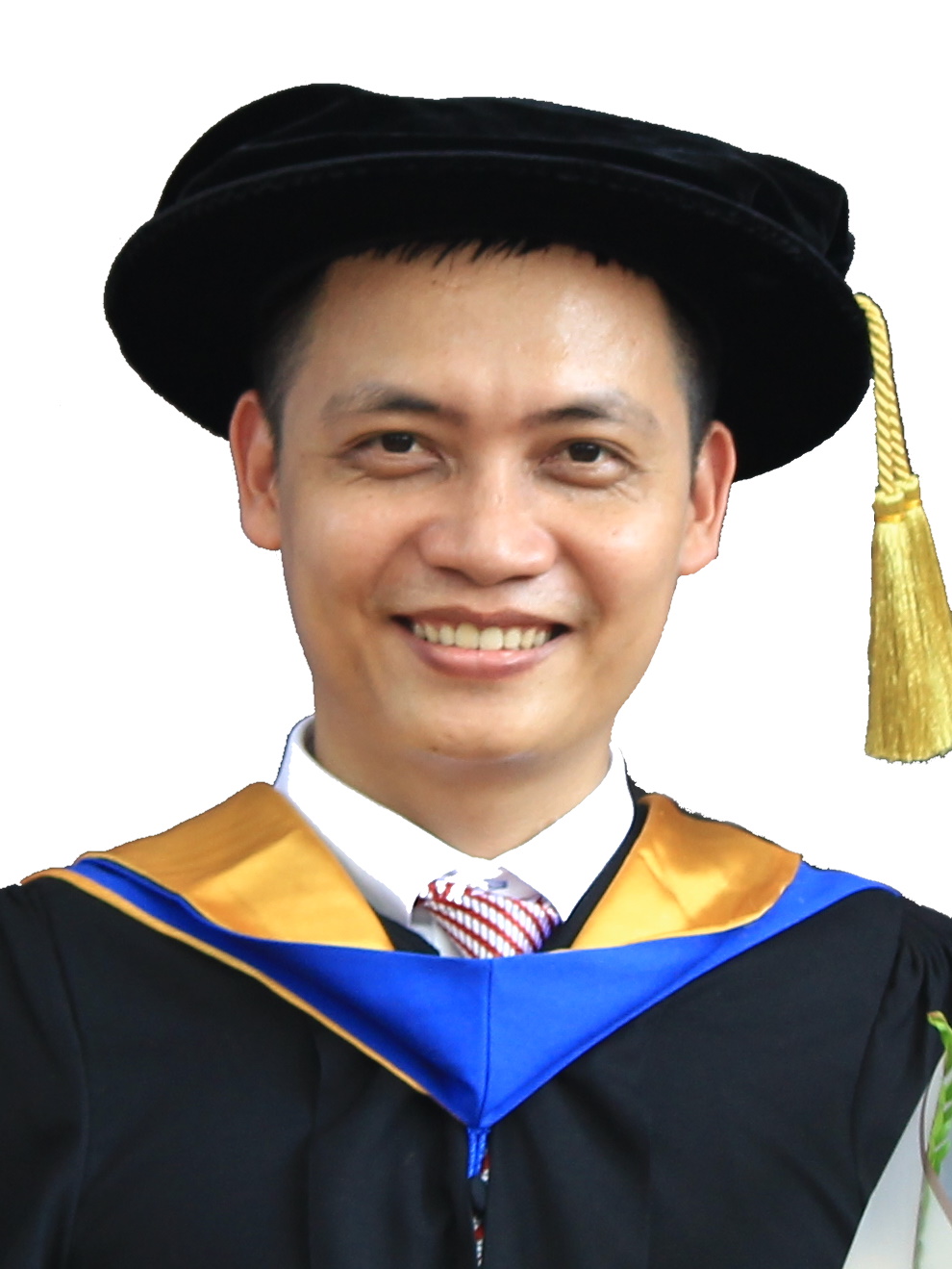


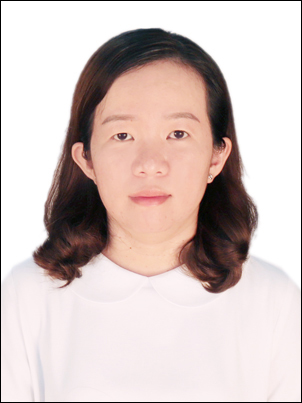

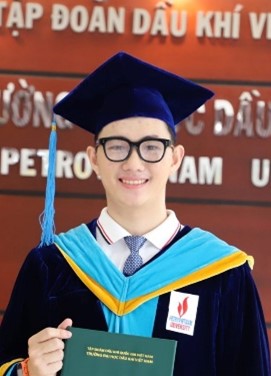
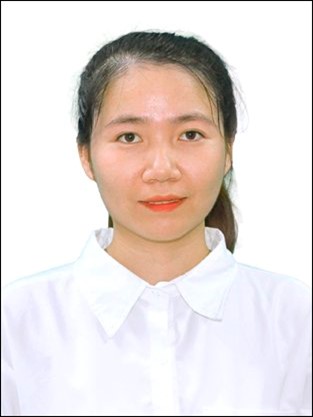
List of non-CE Faculties

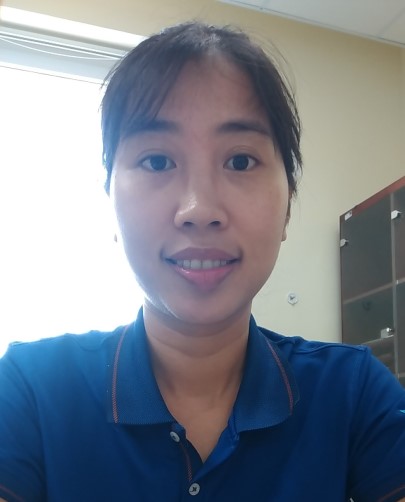
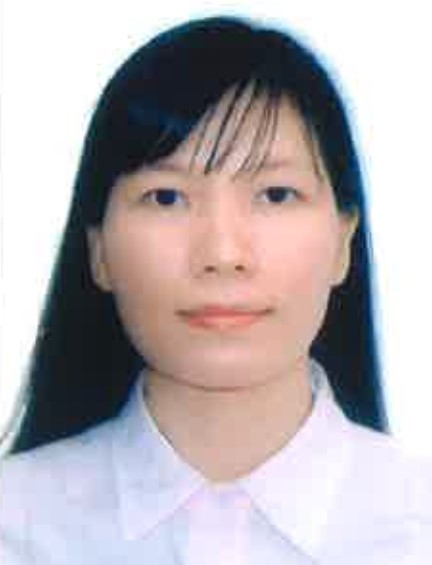
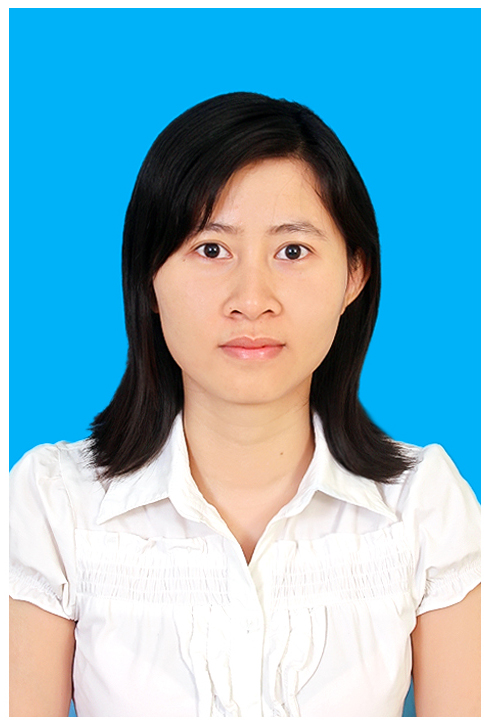
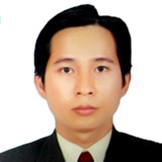
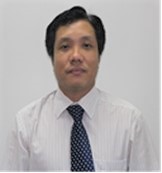
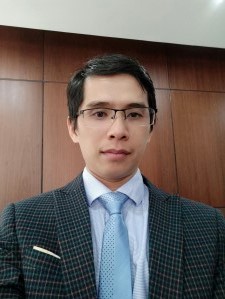
List of Adjunct Faculties
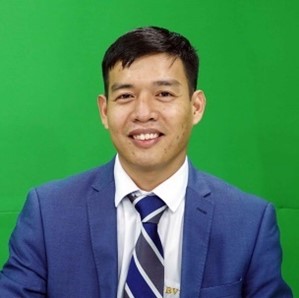
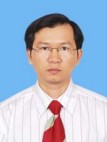
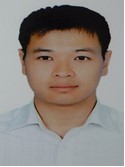
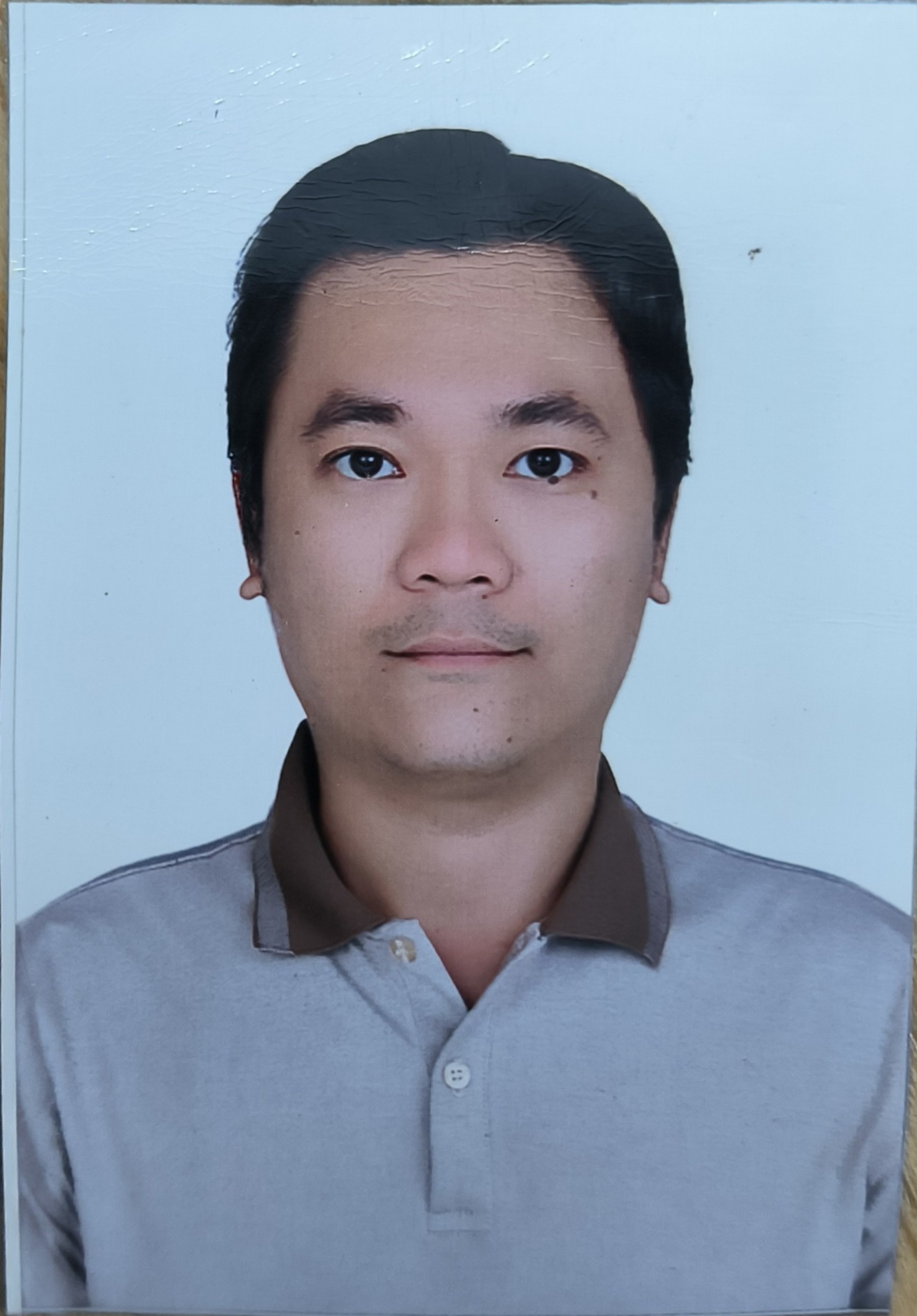
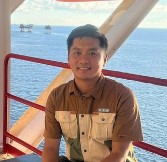

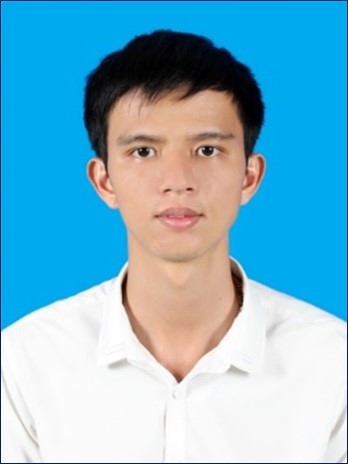
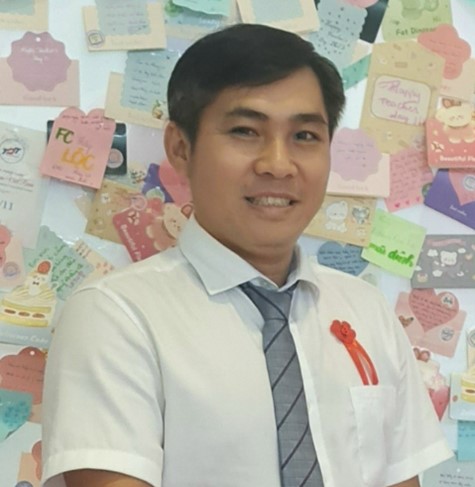

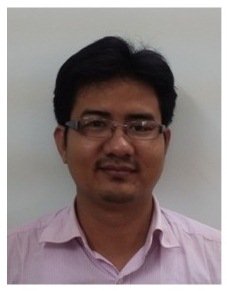
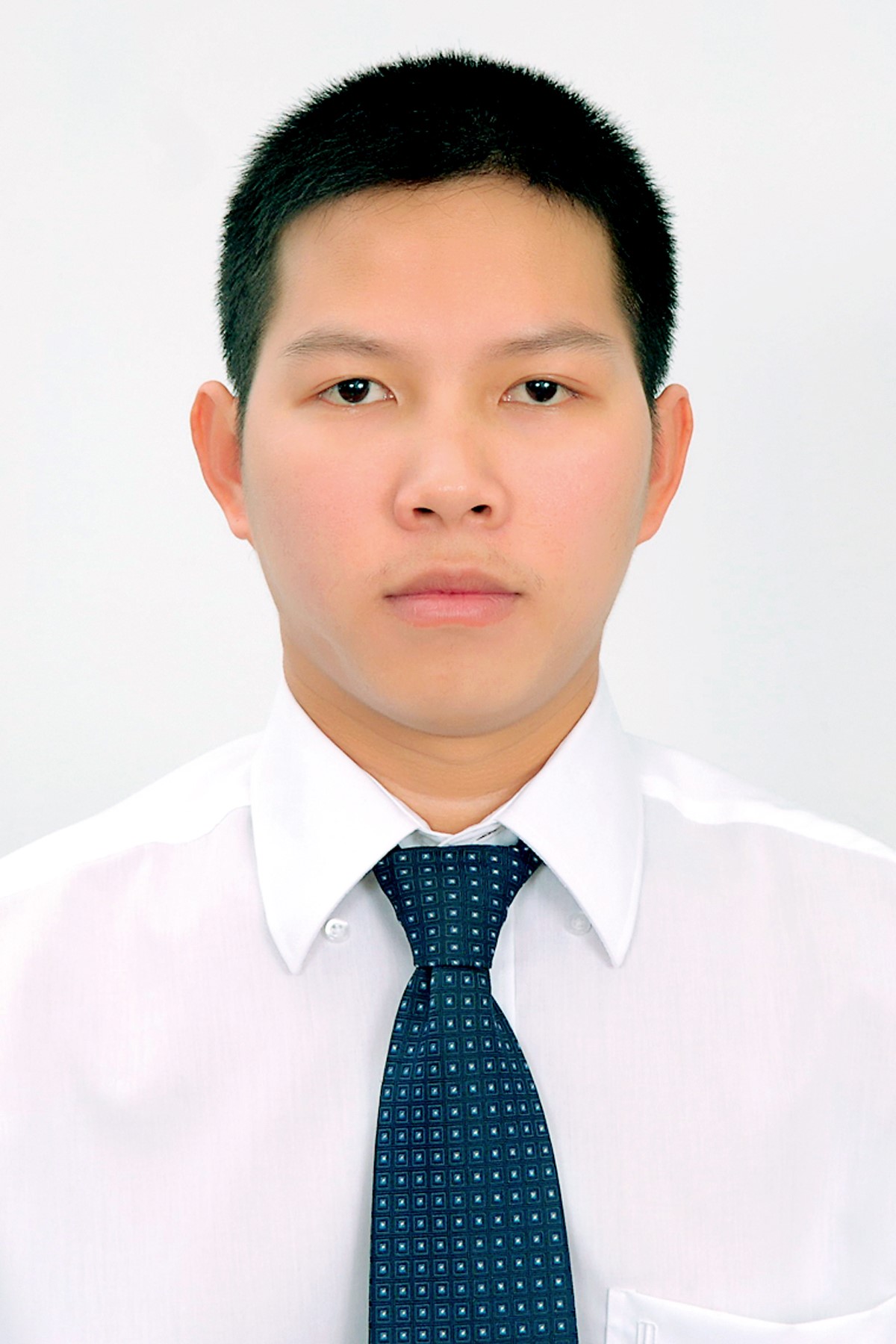
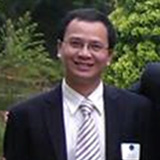
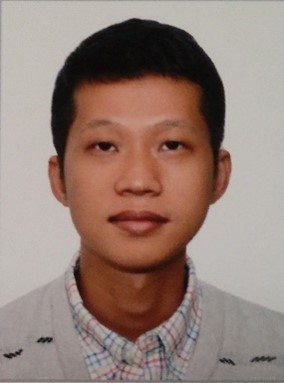
Dial-in number: (+84)(254)3.738879 | (+84)(254)3.738877
| Title | Name | EXT | Floor |
| Dr. | Bùi Thanh Bình | 236 | 7 |
| Dr. | Phạm Bảo Ngọc | 159 | 7 |
| Dr. | Đỗ Thị Thùy Linh | 157 | 7 |
| MSc. | Trần Thị Oanh | 209 | 7 |
| Dr. | Phạm Huy Giao | ||
| Dr. | Nguyễn Thanh Tùng | ||
| Dr. | Đỗ Quang Khánh | 112 | 7 |
| MSc. | Lương Hải Linh | 248 | 7 |
| Dr. | Nguyễn Hữu Trường | 136 | |
| MSc. | Phạm Hữu Tài | 222 | 7 |
| Dr. | Lê Thị Huyền | ||
| BSc. | Võ Thanh Luân | ||
| MSc. | Bùi Tử An | ||
| Dr. | Dương Chí Trung | 124 | 7 |
| Dr. | Phan Minh Quốc Bình | ||
| Dr. | Lê Thanh Thanh | 226 | 7 |
| Dr. | Đàm Thị Thanh Hải | 224 | 7 |
| Dr. | Trương Thanh Tuấn | 225 | 7 |
| BSc. | Ngô Châu Vĩ Khang | ||
| BSc. | Nguyễn Thị Bình | ||
| Dr. | Mai Thị Quỳnh Châu | ||
| MSc. | Phạm Châu Quỳnh | ||
| Dr. | Lê Thị Mỹ Linh | 225 | |
| Dr. | Võ Quốc Thắng | ||
| Dr. | Doãn Ngọc San | 123 | 7 |
At PVU, we are dedicated to providing a comprehensive platform for student career development through various initiatives and partnerships. Our commitment revolves around assisting students in securing internships and employment opportunities. We offer a range of programs designed to equip students with practical skills and real-world knowledge to thrive in their chosen careers.
Our Career Support Initiatives include:
- Internship Opportunities: We facilitate internships by introducing students to available programs, delivering soft skills training, and organizing engagement sessions with industry professionals.
- Advisor Assistance: Advisors are available to help students refine their resumes and cover letters upon request.
- Company Day: Annually, we organize Company Day, featuring mock interviews and networking opportunities with industry representatives. This event serves as a platform for students to interact with potential employers, gain insights into job requirements, and receive feedback on their CVs. Many students have secured employment directly through this event, even before graduating.
- Training Sessions: We conduct 6-7 workshops annually to enhance students' soft skills and provide practical insights from industry experts, aligning them with job market demands.
- Our commitment to student success is evident in our statistics, showcasing that approximately 60-70% of our students find employment immediately after graduation, with a 100% employment rate within six months post-graduation.
- We maintain stable relations with various employers, both domestic and international, with around 70 different companies currently employing PVU graduates. Additionally, through collaborations within and outside of PVN, 100% of PVU students participate in summer internships or final-term internships lasting between 4 to 6 weeks at various companies.
Furthermore, we offer exclusive opportunities such as scholarships for Chemical Engineering students, including internships and thesis projects at renowned companies like Haldor Topsoe (Denmark) and Honeywell UOP (USA).
Our efforts extend beyond graduation, with a dedicated Facebook group (https://www.facebook.com/groups/Alumni.PVU, https://www.facebook.com/groups/Student.PVU) connecting current and former students. This platform shares valuable job-related information and serves as a networking hub for alumni and potential employers. We actively track and analyze the career paths of our alumni through email, phone, and company records, ensuring continuous improvement in our curriculum based on alumni feedback.
---
A Chemical Engineer may be involved in the design, operation, and research of refineries or other processing plants. Accordingly, graduate career opportunities include:
- Design Engineers who focuss on the engineering design process in any of the various engineering plants. The design engineer usually works with a team of other engineers and other types of designers (e.g. industrial designers), to develop conceptual and detailed designs that ensure a product functions, performs, and is fit for its purpose.
- Operation Engineers who work to make sure that all process and functions under their control are working correctly and efficiently.
- Researchers’ duties include analyzing data, gathering and comparing resources, ensuring facts, sharing findings with the whole research team, adhering to required methodologies, performing fieldwork as needed, and keeping critical information confidential.
The Program operates 7 teaching laboratories:
- Analytical Chemistry Laboratory
- Physical Chemistry Laboratory
- Organic Chemistry Laboratory
- Processes and Apparatus of Chemical Technology Laboratory
- Petroleum Analysis Laboratory 1
- Petroleum Analysis Laboratory 2
- General Chemistry Laboratory
All Chemical Engineering labs are mainly used for teaching undergraduate CE courses. The experiments in these laboratories are designed to illustrate to the students fundamental phenomena and to allow them to verify experimentally the basic ideas developed in the various courses of the curriculum. The majority of experiments are included within the main laboratory courses PPR12120LAB, PPR12119LAB, PPR12101LAB, PPR13337LAB, PPR13138LAB, PPR14311 PPR12102LAB.
A faculty member is assigned to every laboratory as a coordinator. He is responsible for the good performance of the laboratory and also specifies its needs in terms of equipment and maintenance.
PVU also has 5 fundamental engineering-shared laboratories and 2 engineering-shared laboratories with Petrovietnam Manpower Training College, respectively:
- General Physical Laboratory
- Materials and Mechanical Laboratory
- Electricity-Electronic Laboratory
- Fluid Mechanics Laboratory
- Petroleum Refining Simulator
- Process Control Laboratory
The CE teaching laboratories have appropriate equipment and useful software for the CE Program. All equipment and instruments available in the laboratories are in a very good state of working condition. Safety equipment is inspected and up to date.
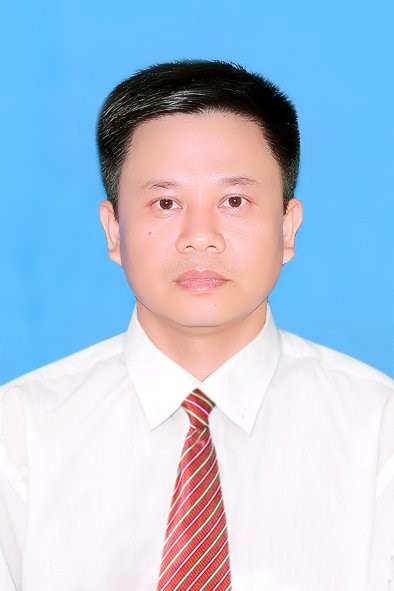 |
Name: Nguyen The Dung Rank: Lecturer Department: Petroleum Drilling and Production Department Email: This email address is being protected from spambots. You need JavaScript enabled to view it. Telephone: 01687872707 Fax: Research Interests: Reservoir Engineering Address: Số 105 Lê Lợi, Phường Thắng Nhì, Thành phố Vũng Tàu, Tỉnh Bà Rịa- Vũng Tàu |
Degree
| Degree | Field | Institution | Year |
| Ph.D. | Production Engineering and Enhanced oil Recovery | Trường Đại học Kỹ thuật dầu khí Upha (Liên Bang Nga) | 09/1997-10/2007 |
| B.Sc. | Tiếng anh Thương mại | Đại học Bà Rịa Vũng Tàu | 06/2013-10/2015 |
| Trung cấp lý luận chính trị | Trường chính trị tỉnh Bà Rịa Vũng Tàu | 23/12/2013-01/07/2015 |
Experience (Academic)
| Institution | Designation | Year/Period |
| Tổng Công ty Thăm dò Khai thác Dầu khí (PVEP)-18 Láng Hạ, Ba Đình-Hà Nội | Kỹ sư Khai thác, Ban Phát triển Khai thác | 01/11/2007-31/12/2009 |
| Công ty Dầu khí Việt Nga Nhật (VRJ)- Vũng Tàu | Kỹ sư chính Công nghệ Khai thác và phân chia sản phẩm, Phòng Kỹ thuật | 01/01/2010-31/12/2012 |
| Xí nghiệp Khai thác Dầu khí, Liên Doanh | Chuyên viên chính bậc 3- Địa chất- Khai thác mỏ, Phòng Địa chất Khai thác mỏ | 01/01/2013-09/06/2014 |
| Viện NIPI, Liên Doanh Việt- Nga, Vietsovpetro, Vũng Tàu | Quyền Phó phòng, Phòng thiết kế Khai thác mỏ | 10/06/2014-01/12/2014 |
| Viện NIPI, Liên Doanh Việt- Nga, Vietsovpetro, Vũng Tàu | Phó phòng, Phòng thiết kế Khai thác mỏ | 19/08/2015- đến nay |
Professional Activities
| Designation | Details | Year/Period |
| Quản trị Doanh nghiệp cao cấp | Trường Đại học Kinh tế Hồ Chí Minh | 09/2015-02/2016 |
| Công nghệ Khai thác Dầu siêu nặng | Schlumberger | 02/05/2008-09/05/2008 |
| An toàn biển | Trường Đào tạo nhân lực Dầu khí | 14-17/02/2008 |
| Nâng cao hệ số thu hồi Dầu | Vietsovpetro | 03-05/2008 |
| Tiếng Anh tập trung | PVN & UNESCO | 04/07/2010-12/09/2010 |
| Nghiệp vụ Đấu thầu | Trường Cao đẳng Dầu khí | 22-24/07/2010 |
| Nghiên cứu đảm bảo dòng chảy cho đường ống khai thác ngoài khơi | Petroskills (Malaysia) | 21-27/11/2010 |
| Tiếng Anh giao tiếp (Intermediate) |
Tiếng Anh giao tiếp (Intermediate) Trung tâm giáo dục tiếng anh ILA |
15/03-28/04/2011 |
| Petrel & Petrel RE | Schlumberger | 19-23/08/2013 |
| Eclipse & Petrel RE | Schlumberger | 15-19/10/2012 |
| Nghiệp vụ Sư phạm | Trường Cao Đẳng nghề Dầu khí | 21-27/12/2012 |
Honors and Awards
| Name | Details | Year |
| Tập Đoàn Dầu khí Quốc Gia Việt Nam | Bằng Khen | 2011 |
| Bộ Công Thương | Bằng Khen | 2012 |
Software Skills
| Type | Description |
| Tiếng Nga | Bằng D |
| Tiếng Anh | Bằng cử nhân |
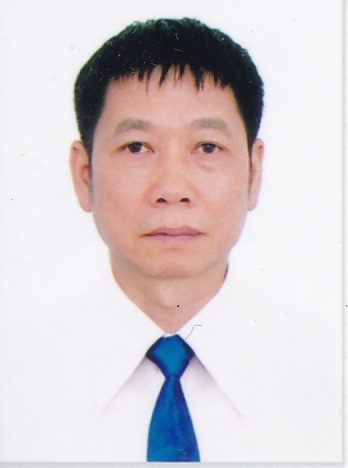 |
Name: Nguyen Huu Chinh Rank: Lecturer Department: Petroleum Drilling and Production Department Email: This email address is being protected from spambots. You need JavaScript enabled to view it. Telephone: 02543838662 (Ext. 5088) Fax: Research Interests: Address: 105 Lê Lợi, Phường Thắng Nhì, Thành Phố Vũng Tàu, Tỉnh Bà Rịa-Vũng Tàu |
Degree
| Degree | Field | Institution | Year |
| Ph.D. | Kỹ thuật thăm dò mỏ khoáng sản có ích | Đại Học Mỏ Địa chất, Hà Nội | 2003 |
| B.Sc. | Công nghệ và kỹ thuật thăm dò mỏ khoán sản có ích | Đại Học Bách Khoa Donesko, Ucraina | 1987 |
Experience (Academic)
| Institution | Designation | Year/Period |
| Viện NCKH&TK, Vietsovpetro | Phó phòng thí nghiệm, Phòng thí nghiệm Gia cố và kết thúc giếng khoan | 2007 - Present |
| Viện NCKH&TK, Vietsovpetro | Kỹ thuật viên, kỹ sư, kỹ sư trưởng, chuyên viên chính, Phòng thí nghiệm Gia cố và kết thúc giếng khoan | 1988-2007 |
| Petrovietnam University | Lecturer | N/A |
Professional Activities
| Designation | Details | Year/Period |
| Tham gia Hội đồng xét duyệt, phản biện đề tài NCKH cấp ngành về khoan nước sâu | Viện Dầu khí | 2010 |
| Tham gia Hội đồng xét duyệt, phản biện đề tài NCKH cấp ngành về khoan bể Nam Côn Sơn | Viện Dầu khí | 2011 |
| Tham gia Hội đồng xét duyệt Luận án Tiến sỹ cấp cơ sở “Nghiên cứu hoàn thiện chế độ công nghệ khoan các giếng có độ dời đáy lớn ở thềm lục địa Việt Nam” | Trường Đại Học Mỏ Địa Chất | 2011 |
| Tham gia Hội đồng xét duyệt, phản biện đề tài NCKH cấp ngành về “Tổng kết và đánh giá công tác bơm trám xi măng cho các giếng khoan có nhiệt độ cao và áp suất cao bể Nam Côn Sơn” | Viện Dầu khí | 2014 |
| Tham gia Hội đồng xét duyệt Luận án Tiến sỹ cấp cơ sở “Nghiên cứu lựa chọn vữa trám cho các giếng khoan dầu khí trong điều kiện nhiệt độ cao và áp suất cao bể Nam Côn Sơn” | Trường Đại Học Mỏ Địa Chất | 2015 |
Special Duties
| Office/Department/Institution | Duty | Year |
| Tiểu Ban Thăm dò-Khai thác, Hội đồng Khoa học Viện NCKH&TK, Liên Doanh Việt-Nga | Ủy viên | N/A |
Courses
| Institution | Course No. | Course Name | Type | Level | Times | Last Time |
| Petrovietnam University | - | Drilling fluids and Cementing | Academic | Undergraduate |
Journal
| no. | Information |
| 1 | Nguyễn Hữu Chinh. Những vấn đề về sử dụng xi măng bơm trám trong gia cố và kết thúc các giếng khoan Dầu khí. Tuyển tập báo cáo Hội nghị KHCN quốc tế “Dầu khí Việt Nam 2010: Tăng tốc và phát triển”, NXB Khoa học và Kỹ thuật- Hà Nội, Quyển 1, (Tr, 837-848), 2010 |
| 2 | Đồng tác giả. Gia cố (chống ống và bơm trám xi măng) giếng khoan trong điều kiện khí xâm nhập. Tuyển tập báo cáo hội nghị KHCN Viện Dầu khí: Trí tuệ dầu khí Việt Nam- Hội nhập và phát triển bền vững, NXB Khoa học và Kỹ thuật, Hà Nội (tr, 434-442), 5/2013 |
| 3 | Đồng tác giả. Thiết kế vữa xi măng trám giếng khoan trong điều kiện áp suất cao nhiệt độ cao bể Nam Côn Sơn. Tạp chí Địa kỹ thuật, Hà Nội, Số 3 (tr. 60-71), 3/2014 |
| 4 | Đồng tác giả. Làm nặng vữa xi măng và sử dụng chúng để bơm trám các giếng khoan Dầu khí bể Nam Côn Sơn, 11/2014 |
|
5 |
Nguyễn Hữu Chinh. Hiện tượng khí xuất hiện, xâm nhập và di chuyển trong vành xuyến các giếng khoan Dầu khí. Tuyển tập báo cáo hội nghị Khoa học kỹ thuật Mỏ toàn quốc lần thứ 23, NXB Công Thương, Hà Nội (tr. 419-426), 12/2012 |
Reseach Projects
| Code No. | Title | Institution | Position | Year |
|
NA |
Phân tích Công nghệ hiện hành và ứng dụng công nghệ mới trong gia cố và kết thúc giếng khoan ở các Mỏ của Liên Doanh, Vietsovpetro |
NCKH của Viện NCKH&TK, LD “Vietsovpetro” |
PI | 2010-2014 |
Software Skills
| Type | Description |
| Tiếng Anh | Nghe (Khá); Nói (Trung bình; Đọc (Tốt); Viết (Trung bình) |
| Tiếng Nga | Nghe ( tốt); Nói ( tốt); Đọc ( tốt); Viết ( tốt) |
